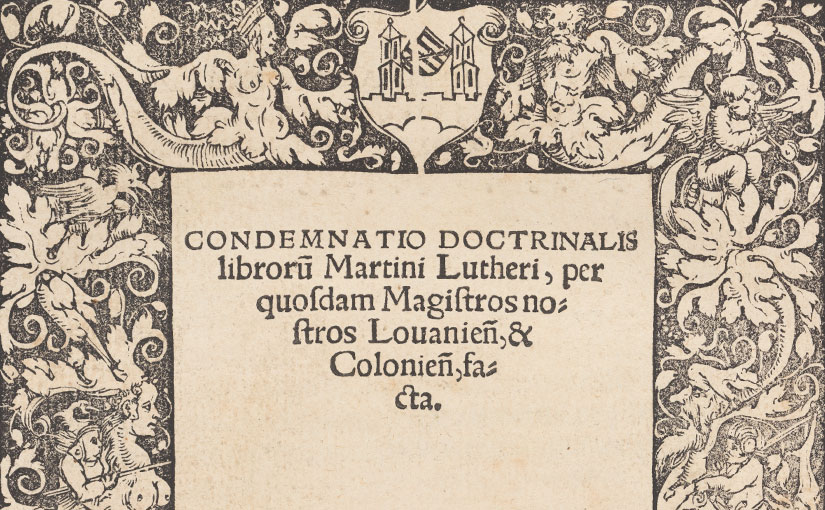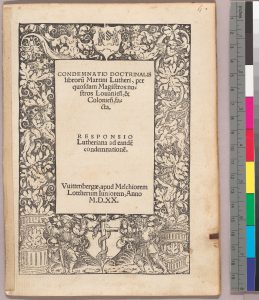by Alan Krieger, Theology and Philosophy Librarian
Hesburgh Libraries has recently acquired a rare volume that includes two early European university condemnations of the teachings of Martin Luther, as well as Luther’s response to them. Condemnatio doctrinalis libroru[m] Martini Lutheri, per quosdam Magistros nostros Louanien[sium] & Colonien[sium], facta. Responsio Lutheriana ad eande[m] condemnatione[m] (Vuittenbergae, 1520) contains official condemnations of Luther’s positions by the theological faculties of Cologne and Louvain, in which these groups assert that certain of Luther’s opinions are heretical, that he should retract them, and that his books should be forbidden and burned.
Historian Gert Gielis has recently explained the importance of these university writings:
“As the first official statements concerning Luther’s heresy, they were imperative steps in branding his teaching as heretical. Conveyed to Rome by Johannes Eck in March, 1520, the academic condemnations eventually influenced the official papal condemnation of Exsurge Domine, issued [by Pope Leo X] a few months later.”
—Gert Gielis, “«Post exactam et diligentem examinationem». How the Louvain Theologians condemned Luther’s Theses (1519): Context, Practices and Consequences,” Annali di Storia delle università italiane 2017, no. 2: p. 121.
The Louvain theologians produced 13 articles and Cologne authored its own set of 10; both faculties presented them to the pope’s representative in Germany, Cardinal Cajetan, for his comments. In early November 1519, the Louvain faculty also sent the text of their condemnation to their Dutch colleague Adriaan Florensz Boeyens, Bishop of Tortosa, who within a few years would become Pope Adrian VI. He answered with a letter on December 4, 1519, expressing his critical views on Luther and supporting the condemnation by Louvain. Both sets of condemnations, along with the letter from Boeyens, were published at Louvain in February 1520. By March 27, Luther had finished a lengthy critique of the universities’ views.
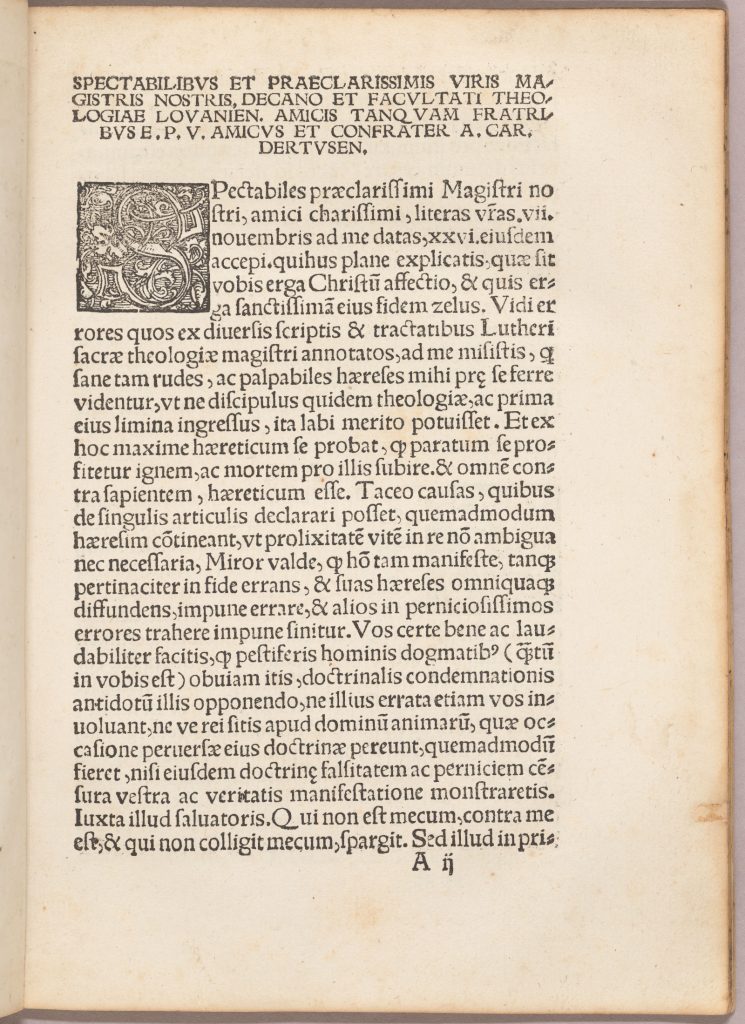
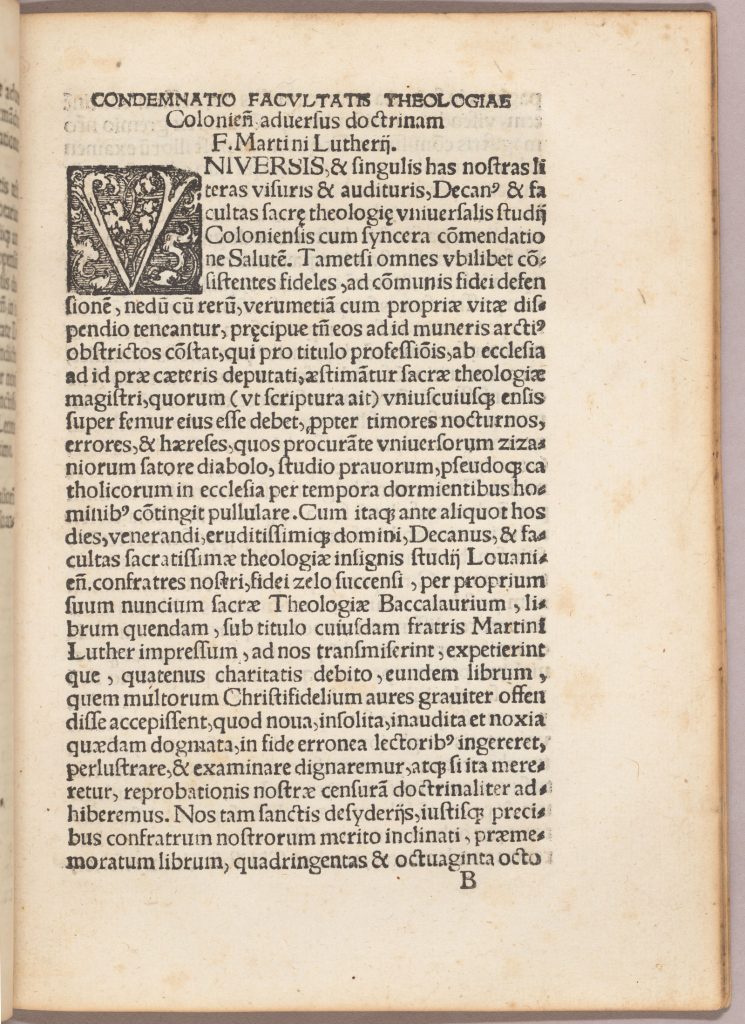
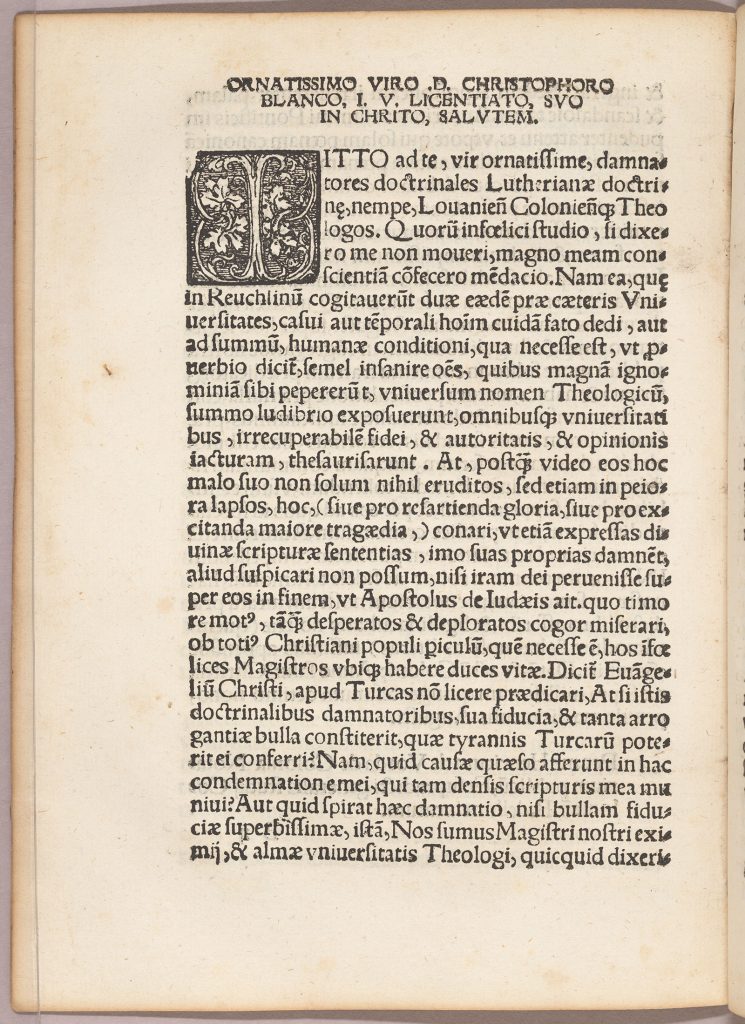
This volume includes the full text of the articles of condemnation issued by both Cologne and Louvain, Boeyens’ letter criticizing Luther, and the first edition of Luther’s rather lengthy reply—which constitutes the majority of the text.
We have identified only three other North American holdings of this Wittenberg edition.
